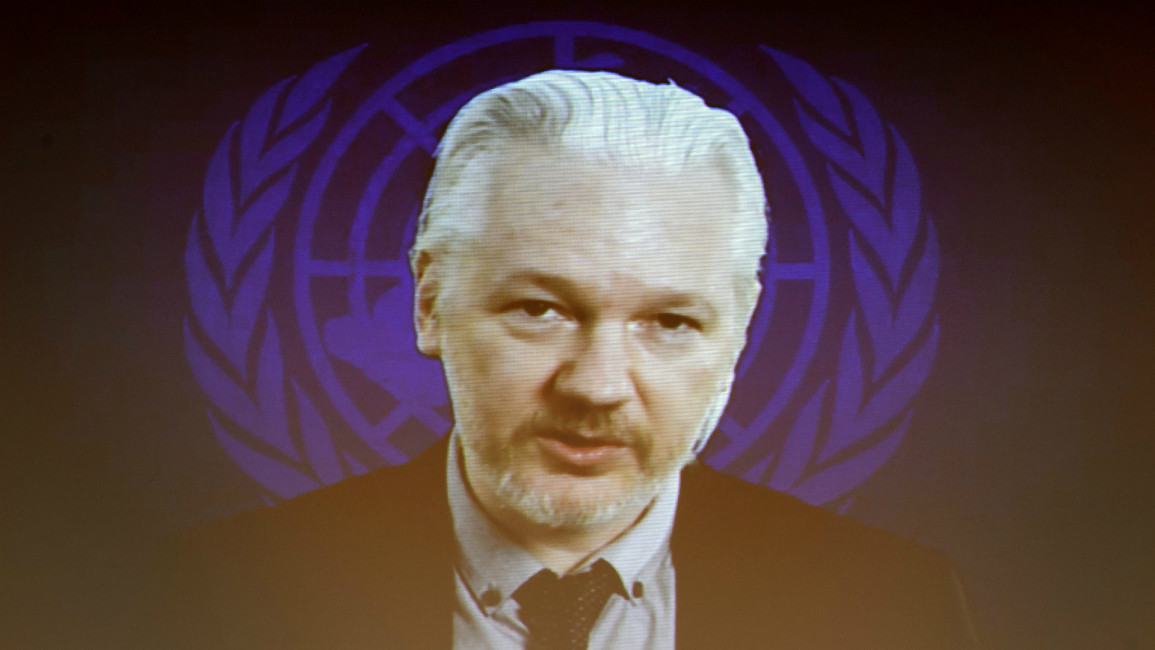UN rules WikiLeaks' Assange 'arbitrarily detained'
A UN panel considering the alleged "unlawful detention" of Julian Assange has reportedly ruled in favour of the WikiLeaks founder.
In 2014, he filed a complaint against the UK and Sweden and said he was being "arbitrarily detained" in the Ecuadorian embassy in London, as he could not leave without being arrested.
On Thursday, WikiLeaks founder Julian Assange said he would accept arrest by British police if a UN working group on arbitrary detention decided that the three years he has spent in the embassy did not amount to illegal detention.
Writing on WikiLeaks' Twitter account on Wednesday night, Assange said if the UN ruled against him, he would turn himself into police at noon on Friday.
— WikiLeaks (@wikileaks) February 4, 2016
" style="color:#fff;" class="twitter-post-link" target="_blank">Twitter Post
|
"However, should I prevail and the state parties be found to have acted unlawfully, I expect the immediate return of my passport and the termination of further attempts to arrest me," Assange added.
Assange has been holed up in the Ecuadorian embassy in west London since 2012 in a bid to avoid extradition to Sweden over rape allegations, charges he has denied.
Ecuador has granted him asylum, but he faces immediate arrest if he steps onto "British soil", and for years police were posted around the clock outside the embassy's doors, costing millions of pounds.
Separately, the Australian-born publisher fears he could eventually face extradition to the United States to be put on a trial over the leak of hundreds of thousands of classified military and diplomatic documents by his anti-secrecy group Wikileaks.
Assange was one of the founders of Wikileaks in 2006, and its activities - including the release of 500,000 secret military files on the wars in Afghanistan and Iraq and 250,000 classified diplomatic cables - have infuriated the United States.
The main source of the leaks, US Army soldier Chelsea Manning, was sentenced to 35 years in prison for breaches of the Espionage Act.
WikiLeaks has said Sweden's handling of his case has left a "black stain" on the country's human rights record.
In September 2014, Assange filed a complaint against Sweden and Britain to the UN Working Group on Arbitrary Detention, claiming his confinement in the embassy amounted to illegal detention.
"The only protection he has... is to stay in the confines of the embassy; the only way for Mr Assange to enjoy his right to asylum is to be in detention," the submission said.
"This is not a legally acceptable choice," it added, according to a file posted on the website justice4assange.com.
Any decision by the UN group would not be legally binding, but Justice for Assange claims its rulings have influenced the release from detention of prominent figures including Myanmar's Aung San Suu Kyi and Washington Post journalist Jason Rezaian, who was held by Iran for 18 months.
Assange has likened his confinement in the embassy, where he lives in a small room divided into an office and a living area, to living in a space station.
Previously, he lived in the more impressive surroundings of an English country mansion owned by one of his supporters, documentary-maker Vaughan Smith.



